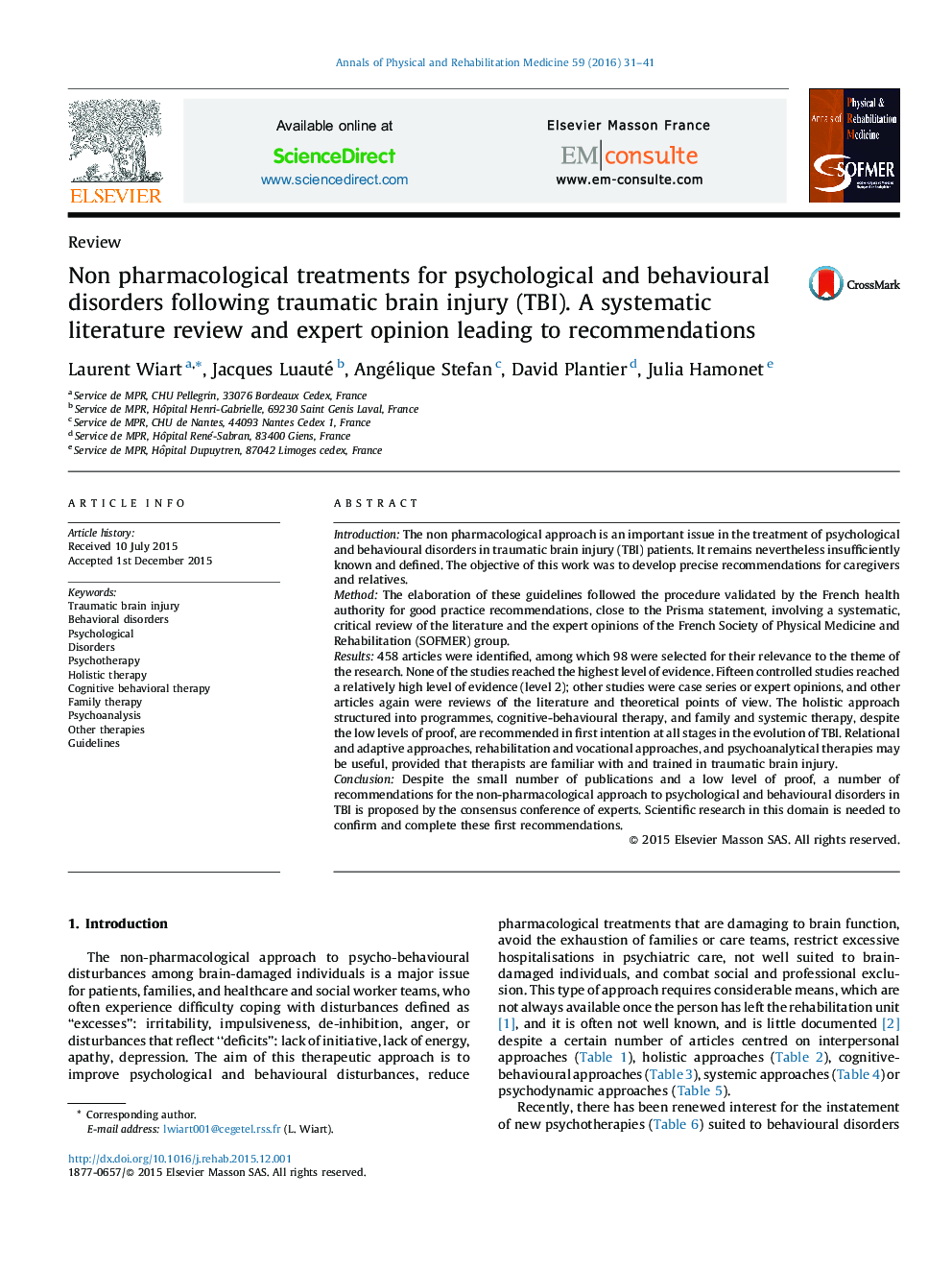| Article ID | Journal | Published Year | Pages | File Type |
|---|---|---|---|---|
| 4040481 | Annals of Physical and Rehabilitation Medicine | 2016 | 11 Pages |
IntroductionThe non pharmacological approach is an important issue in the treatment of psychological and behavioural disorders in traumatic brain injury (TBI) patients. It remains nevertheless insufficiently known and defined. The objective of this work was to develop precise recommendations for caregivers and relatives.MethodThe elaboration of these guidelines followed the procedure validated by the French health authority for good practice recommendations, close to the Prisma statement, involving a systematic, critical review of the literature and the expert opinions of the French Society of Physical Medicine and Rehabilitation (SOFMER) group.Results458 articles were identified, among which 98 were selected for their relevance to the theme of the research. None of the studies reached the highest level of evidence. Fifteen controlled studies reached a relatively high level of evidence (level 2); other studies were case series or expert opinions, and other articles again were reviews of the literature and theoretical points of view. The holistic approach structured into programmes, cognitive-behavioural therapy, and family and systemic therapy, despite the low levels of proof, are recommended in first intention at all stages in the evolution of TBI. Relational and adaptive approaches, rehabilitation and vocational approaches, and psychoanalytical therapies may be useful, provided that therapists are familiar with and trained in traumatic brain injury.ConclusionDespite the small number of publications and a low level of proof, a number of recommendations for the non-pharmacological approach to psychological and behavioural disorders in TBI is proposed by the consensus conference of experts. Scientific research in this domain is needed to confirm and complete these first recommendations.
